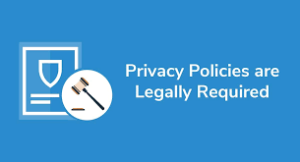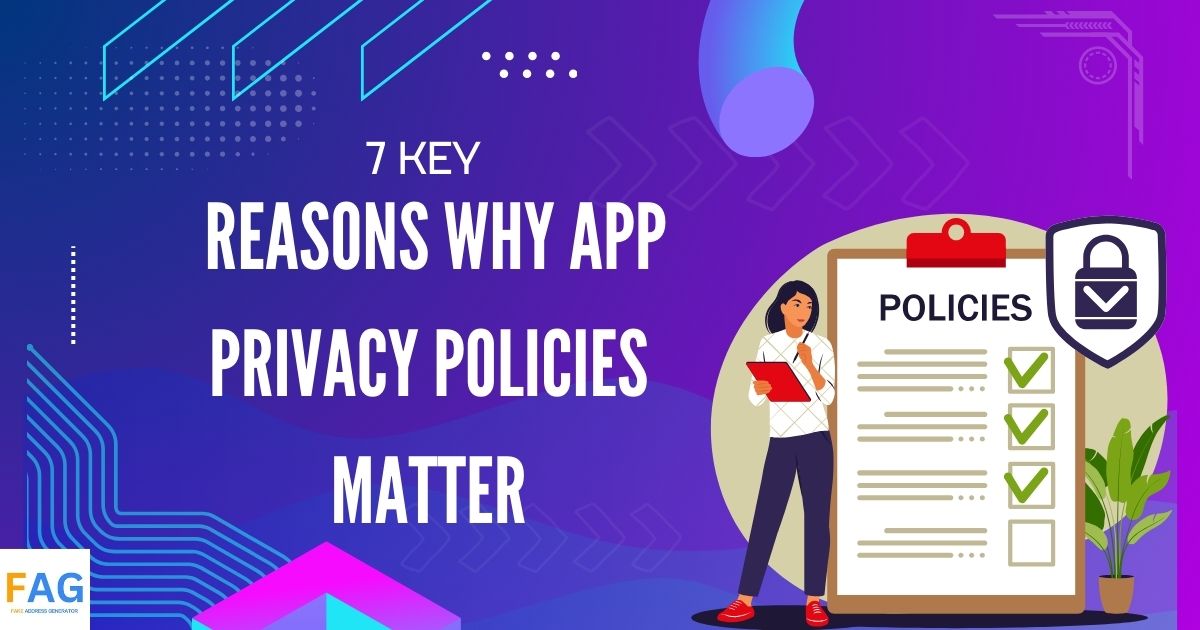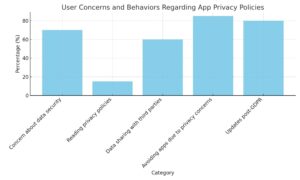App privacy policies are an essential part of any mobile application. They outline how an app collects, uses, stores, and protects user data. These policies are a legal requirement in many countries, and failure to comply can result in significant fines.

One key reason why app privacy policies matter is that they help build trust with users. When users know that their data is being handled responsibly and transparently, they are more likely to use the app and recommend it to others. Additionally, privacy policies can help prevent misunderstandings and disputes between app developers and users. By setting clear expectations about data collection and usage, developers can avoid potential legal issues down the line.
Another important reason why app privacy policies matter is that they can help protect against data breaches and cyber-attacks. By outlining how user data is secured and protected, app developers can take steps to prevent unauthorized access and minimize the risk of data loss or theft. This can help protect both users and developers from the potentially devastating consequences of a data breach.
| Statistic | Percentage | Source |
|---|---|---|
| Users concerned about personal data security | 70% | Pew Research Center |
| Users who read privacy policies | 15% | Consumer Reports |
| Apps that share data with third parties | 60% | Privacy Rights Clearinghouse |
| Users who avoid certain apps due to privacy concerns | 85% | Kaspersky Lab |
| Increase in privacy policy updates post-GDPR | 80% | TechCrunch |
Seven Crucial Reasons App Privacy Policies Are Essential

In today’s digital age, privacy is a top concern for users when it comes to mobile apps. App privacy policies are a critical tool for ensuring that users’ personal data is collected, used, and shared in a transparent and responsible manner. Here are seven key reasons why app privacy policies matter:
1. Transparency
2. Legal Compliance
3. User Control
4. Security Assurance
5. Market Confidence
6. Customization and Preferences
Privacy policies play a crucial role in clarifying how apps and associated third-party services utilize user data, including the deployment of artificial intelligence, to tailor and enhance the user experience. This transparency is key to helping users grasp the tangible benefits of data sharing, such as personalized content, targeted recommendations, and optimized app performance. By detailing these uses in the privacy policy, apps not only comply with legal requirements but also educate users on how their data contributes to a more customized experience.
Providing clear and accessible information about data usage for customization purposes allows users to make informed choices about their data-sharing preferences. This understanding can lead to increased user satisfaction as they see a direct correlation between data provision and the value received. Furthermore, when users are informed about how their data is used and see the benefits in their app interactions, they are more likely to feel comfortable with and consent to data sharing, thereby enhancing user engagement and loyalty to the app.
7. Prevention of Misuse
Frequently Asked Questions
What are the implications of not having a privacy policy for a mobile application?
Not having a privacy policy for a mobile application can lead to serious legal and financial consequences. Many countries have laws that require app developers to have a privacy policy in place. Failure to comply with these laws can result in fines or even legal action. Additionally, users may be hesitant to use an app that does not have a privacy policy, which can lead to a loss of trust and a decrease in downloads.
How can a privacy policy enhance user trust in an application?
A privacy policy can enhance user trust in an application by providing transparency about the data collection and usage practices of the app. Users want to know that their personal information is being handled responsibly and that their privacy is being respected. By providing a clear and concise privacy notice, app developers can demonstrate their commitment to protecting user privacy and building trust with their users.
What legal requirements must a privacy policy comply with?
A privacy policy must comply with applicable laws and regulations, such as the General Data Protection Regulation (GDPR) in the European Union and the California Consumer Privacy Act (CCPA) in the United States. These laws require app developers to provide specific disclosures about the data they collect, how it is used, and how users can exercise their data rights.
How does a privacy policy protect both the app developer and the user?
A privacy policy protects both the app developer and the user by setting clear expectations about data collection and usage. For app developers, a privacy policy can help reduce the risk of legal action and protect their reputation. For users, a privacy policy can provide reassurance that their personal information is being handled responsibly and that they have control over their data.
In what ways does a privacy policy contribute to transparent data-handling practices?
A privacy policy contributes to transparent data handling practices by requiring app developers to clearly disclose their data collection and usage practices. This includes information about what data is collected, how it is used, and how users can control their data. By providing this information in a clear and concise manner, app developers can demonstrate their commitment to transparency and build trust with their users.
What should users look for in a privacy policy to understand their data rights?
Users should look for several key pieces of information in a privacy policy to understand their data rights. This includes information about what data is collected, how it is used, and how users can control their data. Users should also look for information about their right to access, correct, or delete their personal information. Additionally, users should ensure that the privacy policy is updated regularly to reflect any changes in data handling practices.











